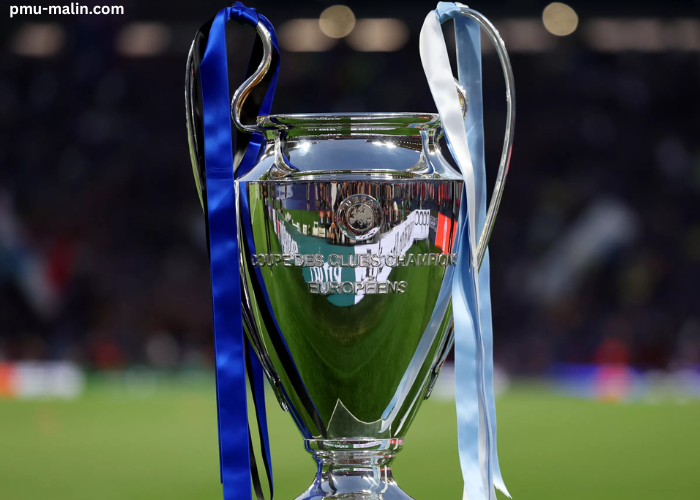The Ligue Des Champions (Champions League) represents the pinnacle of club football in Europe. Established in 1955, it has evolved from a simple knockout competition into a grand spectacle that attracts the best teams and players from various leagues. The tournament not only elevates the prestige of the clubs involved but also serves as a platform for emerging talents. Each season, football fans eagerly anticipate the thrilling matches and unforgettable moments that the Ligue Des Champions delivers.
What is the History of the Ligue Des Champions?
The Ligue Des Champions has a rich history that traces back to its inception as the European Champion Clubs’ Cup in 1955. Originally designed as a knockout competition, it featured a limited number of teams. The first-ever winner was Real Madrid, setting the stage for a legacy that would see the club become one of the most successful in the tournament’s history.
In 1992, the competition was rebranded as the Ligue Des Champions, introducing a group stage format that allowed more teams to participate. This change significantly increased the tournament’s appeal and competitiveness. Over the years, clubs like AC Milan, Liverpool, and Barcelona have left their mark on the Ligue Des Champions, showcasing their dominance on the European stage.
How is the Ligue Des Champions Structured?
The Ligue Des Champions consists of several phases, including the qualifying rounds, group stage, knockout stage, and the final. In the qualifying rounds, teams from lower-ranked leagues compete for a spot in the group stage. The group stage features 32 teams divided into eight groups, where each team plays home and away matches.
The top two teams from each group progress to the knockout stage, culminating in a single-match final to determine the champion. This structure not only adds excitement but also ensures that clubs must perform consistently to advance, making every match crucial in the journey to the final.
Who Are the Most Successful Clubs in Ligue Des Champions History?
When discussing the Ligue Des Champions, certain clubs stand out due to their remarkable achievements. Real Madrid holds the record for the most titles, having won the tournament 14 times, with their most recent victory in 2022. Their success is often attributed to legendary players and strategic brilliance.
Other notable clubs include AC Milan, with 7 titles, and Liverpool, with 6. These teams have not only showcased exceptional talent but have also contributed to memorable moments in football history. Each of these clubs has developed a strong following and continues to be a formidable presence in the Ligue Des Champions.
What Impact Does the Ligue Des Champions Have on European Football?
The Ligue Des Champions has a profound impact on European football, both financially and socially. The tournament generates significant revenue through broadcasting rights, sponsorships, and ticket sales. This financial influx allows clubs to invest in top talent and infrastructure, creating a competitive environment in domestic leagues.
Socially, the Ligue Des Champions fosters a sense of community among fans, bringing together diverse cultures and nationalities. The passionate rivalries that develop during the tournament contribute to the global appeal of football, uniting millions in support of their favorite teams.
How Do Clubs Qualify for the Ligue Des Champions?
Qualification for the Ligue Des Champions is determined by a club’s performance in their domestic leagues. The top teams from major leagues, such as the Premier League, La Liga, and Serie A, automatically qualify for the group stage. Additionally, clubs that perform well in lower-ranked leagues have the opportunity to compete through the qualifying rounds.
The qualification process is highly competitive, making it imperative for clubs to perform consistently throughout the season. This emphasis on performance adds an additional layer of excitement for fans, as each match can significantly impact a team’s chances of competing in the prestigious tournament.
What Are Some Memorable Moments in Ligue Des Champions History?
The Ligue Des Champions has been the backdrop for numerous unforgettable moments that have shaped the history of football. One such moment occurred during the 2005 final between Liverpool and AC Milan. Liverpool staged an incredible comeback, overcoming a 3-0 deficit at halftime to win the match in a dramatic penalty shootout.
Another notable moment came in 1999 when Manchester United scored two late goals in the final against Bayern Munich, clinching victory in stoppage time. These moments are etched in the memories of fans and serve as a testament to the unpredictable and thrilling nature of the Ligue Des Champions.
How Does the Ligue Des Champions Influence Player Careers?
The Ligue Des Champions is not only a prestigious tournament for clubs but also a significant stage for players to showcase their talents. Exceptional performances in the tournament can elevate a player’s profile, leading to lucrative transfers and recognition on a global scale. Many players aspire to compete in the Ligue Des Champions, as it provides a platform to demonstrate their skills against the best in the world.
Moreover, winning the Ligue Des Champions is often viewed as the pinnacle of a player’s career, adding a coveted trophy to their achievements. The tournament has seen the rise of legends like Cristiano Ronaldo and Lionel Messi, whose performances have left an indelible mark on the competition.
Conclusion
In conclusion, the Ligue Des Champions is more than just a football tournament; it is a celebration of passion, talent, and competition. With its rich history, structured format, and the involvement of elite clubs, the Ligue Des Champions continues to capture the hearts of millions around the world. As we look ahead to future seasons, the excitement surrounding the tournament remains palpable, promising unforgettable moments and legendary clashes on the pitch.
As fans and players eagerly await the next chapter in the story of the Ligue Des Champions, one thing is certain: the spirit of competition will continue to thrive, making it an enduring fixture in the world of football.

